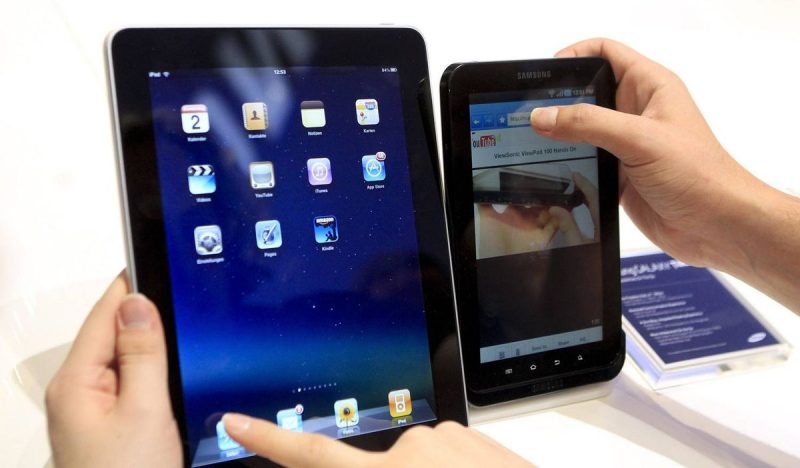Tablet devices are becoming less prominent in the market than tech companies would expect. Recent industry statistics show that tablet devices are in rapid decline.
"Of the 173.8 million tablets devices shipped during the year (2018), 54.8 million were accounted for in the fourth quarter" @ashabeeeee https://t.co/AV3ipgRshX
— Eric Smith 😷 (@esmith_SA) February 1, 2019
Although they’ve been in existence for a very long time, tablet devices snagged a large market following the introduction of Apple’s iPad in 2010. And thanks to the development and ubiquitous nature of the Android OS, tablet devices grew and spread even quicker. They also became cheaper.
https://technext.ng/2018/03/02/3-reasons-africans-bought-fewer-smartphones-in-2017/
However over the last few years, the popularity of tablet devices has hit a snag. In 2016, 174 million tablet devices were shipped globally. But that represents a 15.6% decline compared to statistics from 2015. Although sales picked up to reach 185.2 million in 2017, it declined significantly again to 173.8 million shipments.


Although this decline parallels a similar decline in the smartphone industry, the decline in tablet sales is more interesting. And a few sticking points explain this decline.
Primary tablet market has changed
Five years ago, manufacturers conceived tablets as trendy devices that would replace laptops and PCs. Basically, the target market was primarily everyday people. However there’s been a serious change of consumer target ever since. Today, tablet devices are increasingly been used in the enterprise environment than households.
I promise my child won’t have a tablet unless it’s for educational purposes. I lowkey hate seeing kids walking around glued to their tablet. excessive screentime can lead to ADHD, anxiety, and depression in children.
— Lin Mamas. ✨ (@Linnzo_) January 31, 2019
More tablet devices are being used in enterprise segments, such as education, healthcare, and retail. This is because they have a form factor that is bigger than smartphones but more compact than laptops.
As a result, companies tend to focus their marketing resources on enterprises and businesses.
Companies like Microsoft have increasingly gone this route, opting to include keyboards in many of their products. Interestingly, statistics show that Microsoft has gained some market share thanks to this while Apple has struggled to grow in this direction. That’s not surprising because Apple is primarily consumer focused and pays less attention to enterprise.
During #Bett2019 we announced seven new laptops and two-in-one tablets to help schools who continue to operate on very limited budgets, including the Lenovo 300E that can use a No.2 Pencil as a stylus. Learn about these devices at @GeekWire. https://t.co/vilLjNOs3f pic.twitter.com/MkpVcsVCAD
— Barbara Holzapfel (@bnholzapfel) January 29, 2019
This shift in consumer target reduces the pool for market growth.
Recent Tablet Devices Are Less Innovative
Unlike the early days of the iPad, tablets today don’t have enough new features to make them worth the money. This reality has more impact considering that newer smartphones are becoming more and more powerful.
Additionally, unlike the early days of the iPad, smartphones today have bigger sizes, some nearly as big as tabs. In the past, Steve Jobs loathed the idea of “bigger” iPhones, but today, iPhone X has a screen size of 6.5 inches. This reduces the importance of the tablets as well as affects the chances of survival for low-end tablets.
https://twitter.com/luuzyyy/status/1060891097637900289
Developed to be cheap and accessible, low-end tablets come with smaller screens but enough power for important tasks. However, in a world where an average consumer prefers either a detachable laptop or a bigger smartphone, low-end smartphones are extremely vulnerable.
Longer Consumer Cycles
Similar to what we’ve seen in the smartphone industry, consumers are less willing to upgrade their tablet devices today than previous times. Thanks to rising prices of tablets, smartphones and laptops, most consumers are increasingly making the choice to stick with older devices or not buy new ones immediately.






